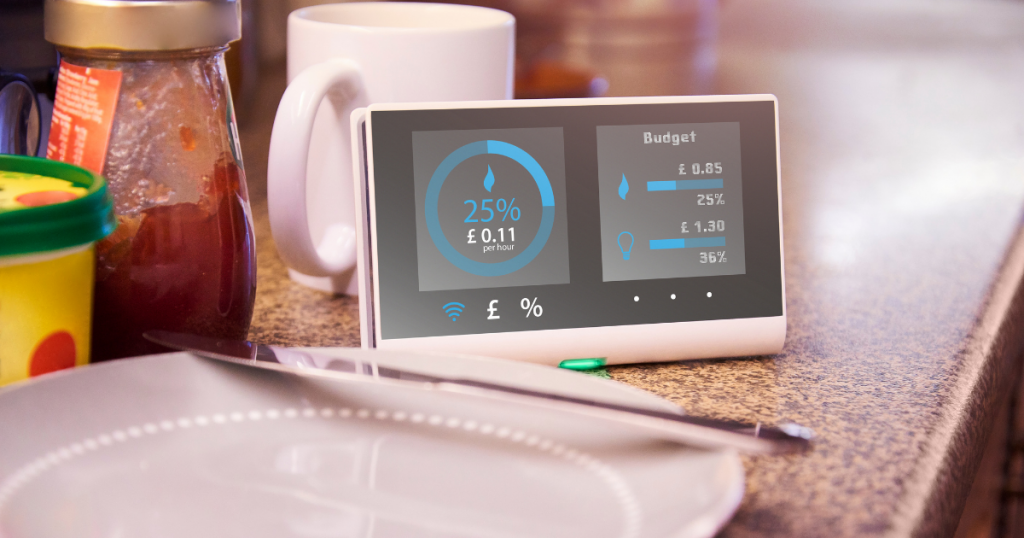
How can I make my home more energy efficient?
The ongoing headlines surrounding the imminent rising costs of energy have understandably left many people feeling uneasy.
Combine that with the fact that many of us typically use more energy at this time of the year to fight the falling temperatures, it’s only natural that you may be looking for ways to heat your home more efficiently and keep costs as low as possible.
To help you on your way, we’ve highlighted a few basic ideas that can reduce your energy consumption, along with some long-term changes to create a greener home.
Everyday tips
Rearrange furniture
Making simple, small changes around your home can make a huge difference. For example, is your sofa blocking a radiator? Moving furniture around to better allow heat circulation is a quick and easy way to increase temperatures at no extra cost.
Close those curtains
Keeping your curtains closed once the sun goes down is another handy way to contain heat, as is ensuring any drafts are blocked off using draft excluders and self-adhesive foam around window frames.
Optimise your heating hours
Those with a timed thermostat can take a more tactical approach, making sure you only use the heating at optimal times that suit your daily routine.
Bleed your radiators
Finally, while bleeding radiators may seem like a daunting task, it’s actually incredibly straightforward and essential in making sure they’re working at 100%. To check if this needs doing, turn your heating on and see if your radiators are hot from top to bottom. If they are not, use a radiator key or screwdriver to twist the bleed valve until you hear air rushing out. Have a container ready to catch any water that is expelled before closing the valve back up.
Long-term investments
Time for a boiler upgrade?
Replacing your boiler, especially if it’s more than ten years old, is one of the more obvious long-term solutions for making your home greener, and will almost certainly save you money in the long-run. In fact, according to Heatable, upgrading to a new modern combi boiler is likely to save you between 20-35% on gas bills.
Insulation
Around 25% of heat is lost through the roof of our homes, so installing loft or roof insulation is a worthwhile investment. If your attic is easy to access, this process is fairly straightforward and can be done yourself.
Underlay and floorboards
If you’re laying carpets, consider fitting underlay first—according to Which? up to 15% of heat in a room can be lost due to uninsulated floors. Alternatively, if you have floorboards, using a sealant between the gaps of each panel can be effective too.
Other ideas
Double-glazed windows, cavity wall insulation and smart heating controls are a few other things to keep in mind to help make your home more efficient.
Sustainable shifts
The UK government recently laid out plans to become carbon neutral by 2050, placing a greater focus on renewable energy sources with the hope that they eventually become the norm.
Boiler alternatives
With that being said, as we look further ahead, gas alternatives such as heat pumps and hydrogen boilers will become more commonly used. Though the costs currently involved may be off-putting to most, it is something potentially worth exploring should you have the resources.
Going solar
Solar power is something we’ve seen used more frequently in homes in recent years, utilising rooftop panels that absorb sunlight and transform it into electricity that can provide both heat and power. Not only is this a far more environmentally-friendly way of generating energy, but E.ON says these panels can save an average of £400 per year, and any excess energy you don’t use can be sold into the national grid as part of the government’s Smart Export Guarantee.
Wind power
Homeowners can even install their own wind turbine as a way of generating power. The Energy Saving Trust estimates that a 5kW pole-mounted turbine can save around £250 per year on electricity bills, while also earning an additional £235 per year in SEG payments.
Servicing your appliances
It’ll come as no surprise that if an appliance isn’t working properly, it’s likely not running at its most efficient—that’s why it’s important to ensure you have them serviced by a professional.
Along with the financial benefits of regular servicing, it’s also vital from a health and safety standpoint. It’s imperative that you ensure anyone carrying out work on a gas appliance is a member of the Gas Safe Register.
Useful resources
Both the Met Office and British Gas have shared useful tips for keeping your home warm in winter, and Ofgem has compiled a list of government schemes, grants and benefits to help improve your home’s efficiency.
For more information on alternative energy sources, Energy Saving Trust has explained a variety of emerging technologies in more detail.